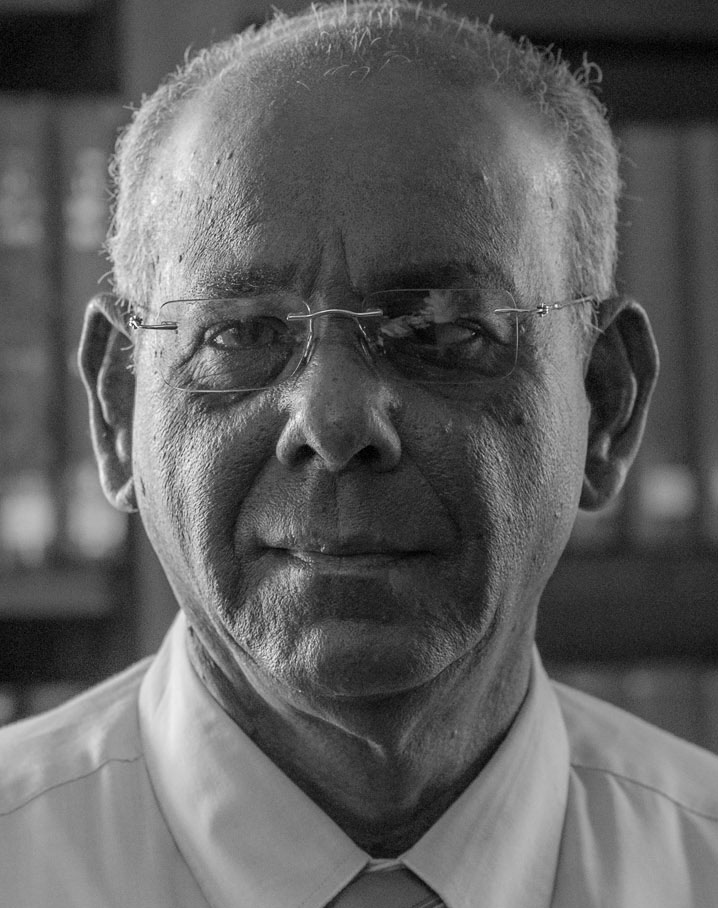There is no correlation between the appointments of either the Chief Justice or Chancellor and the establishment of a Judicial Service Commission, former Speaker of the House Ralph Ramkarran yesterday said, as he bemoaned the continued sloth by President Irfaan Ali in making the substantive appointments.
“If President Ali’s understanding of the constitutional provisions relating to the appointment of a Chancellor and Chief Justice, is that they have to be recommended by the JSC, or that there is a linkage between the existence of the JSC and the appointments, the view is misconceived,” Ramkarran yesterday wrote in his blog ‘The Conversation Tree’ which was published in the Sunday Stabroek.
Having listed the laws of this country related to the appointments, Ramkarran added, “Based on the constitutional provision cited above, the President needs only to identify the persons, obtain the agreement of the Leader of the Opposition and make the appointments. If the nominees are the current acting incumbents, the only requirement would be for the President to issue the necessary instruments and swear in the appointees because the Leader of the Opposition has already publicly agreed.”
Earlier this month, during an exclusive interview with the Stabroek News, Ali was asked about the delay in the appointments, even as he was told that the opposition has assured that it would support the two persons in the current respective positions.
While noting that the Acting Chief Justice and Chancellor are working and the country is not in crisis, the President did not commit to a timeframe for substantive appointments but hinted that the Judicial Services Commission would be first set up.
“We don’t have a Judicial Service Commission [JSC] as yet. You can’t look at an entire judiciary without having a holistic solution. So let me say very clearly at the appropriate time, the matter of the Chancellor and the Chief Justice will be brought on the agenda. You have a chancellor. You have someone performing the duties of a chancellor right now. How do you think I was sworn in? Who swore the president in? It is the chancellor, the acting chancellor who swore in the president. So I don’t know, it’s not like the country’s without a chancellor,” he had said.
Justice Yonette Cummings-Edwards and Justice Roxane George SC, were respectively appointed acting Chancellor of the Judiciary and Chief Justice back in 2016 and 2017, following the retirement of then acting Chancellor Carl Singh, who was also never confirmed despite having served for 12 years.
Guyana has not had a confirmed Chancellor for 17 years.
There have been calls from several sections of society for the substantive appointments of Chancellor and Chief Justice, but successive governments have failed to do so.
Ramkarran also highlighted this fact as he also stated that if the nominees are the current acting incumbents, the only requirement would be for the President to issue the necessary instruments and swear in the appointees, because the Leader of the Opposition has already publicly agreed.
He referenced Article 127(1) of the Constitution, which states: “The Chancellor and Chief Justice shall each be appointed by the President, acting after obtaining the agreement of the Leader of the Opposition.” Article 128(1) underlines the power of appointment given to the President,” he reminded that “It provides: “The Judges, other than the Chancellor and Chief Justice, shall be appointed by the President who shall act in accordance with the advice of the Judicial Service Commission.”
Reference was also made to sub-article (2) of article 127 which provides for acting appointments of a Chancellor and Chief Justice if there is a vacancy and for other reasons.
In relation to a vacancy, he said that it provides that: “If the office of Chancellor or Chief Justice is vacant… until a person has been appointed to and has assumed the functions of such office… those functions shall be performed by such other of the Judges as shall be appointed by the President after meaningful consultation with the Leader of the Opposition.”
A practicing attorney, the former Speaker explained that the words “if the office… is vacant” means “in the event that.”
He said that it signifies a “contingency”.
“It does not contemplate a situation that has been deliberately created or is being unduly and deliberately perpetuated,” Ramkarran said.
He averred that Ali is now required to fulfil his constitutional responsibility, “which he does not have the luxury of declining for any reason, including non-urgency.”
And as he pointed to excerpts of the Ali’s interview with this newspaper earlier this month, Ramkarran said that that one would believe that Ali’s pointing out that there is an acting Chancellor and an acting Chief Justice in place, and since the judiciary is functioning, means that there is no urgency to make the appointments.
“There is an urgency. The positions of Chancellor and Chief Justice have been vacant for more than seventeen years. The lack of alacrity or sense of urgency to fill constitutionally mandated posts which have been vacant for so long cannot withstand constitutional scrutiny,” he contended.
“The judiciary, along with the executive and the legislature, is one of the three branches of government. The other two branches, the executive and the legislature, will not be treated with anything near to the scant disregard and constitutional impropriety that the judiciary is being treated. If the President is hoping that delay will somehow reduce focus on the appointments, or make the issue disappear, or that different candidates will materialise, he is being unrealistic,” he opined.




